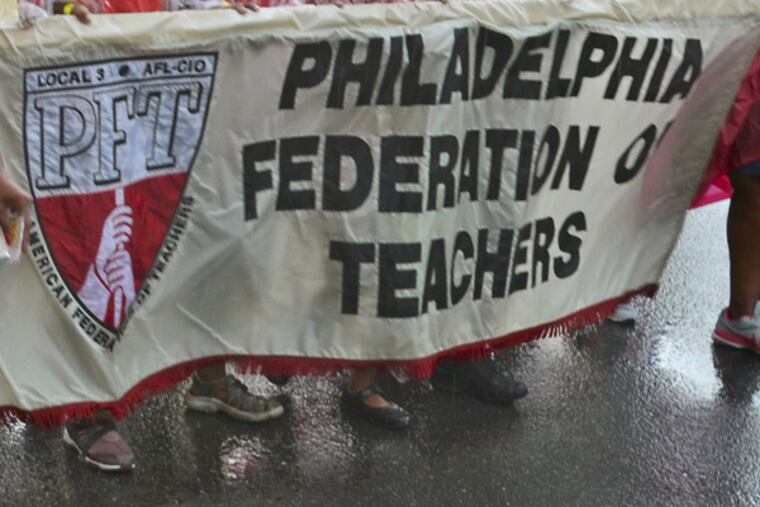Not asking too much
The negotiating tactics of the Philadelphia teachers' union have not only jeopardized its contract. They have eroded public sympathy for hardworking teachers whose daily sacrifices to educate children in a challenging urban setting are commendable.

The negotiating tactics of the Philadelphia teachers' union have not only jeopardized its contract. They have eroded public sympathy for hardworking teachers whose daily sacrifices to educate children in a challenging urban setting are commendable.
The School Reform Commission's abrupt decision to void the Philadelphia Federation of Teachers' contract Monday was surprising only in that it took so long for the panel to take that step. The two sides have been unable to reach an agreement on a new contract for 21 months.
Meanwhile, local elected officials worked with the SRC to close a looming budget hole through a combination of more taxes, more money from the city and state, and payroll concessions by blue-collar workers. The teachers' union offered some concessions, too, but the SRC said they weren't enough.
Instead of feeling sorry for teachers, many Philadelphians may feel the educators have only themselves to blame for encouraging union President Jerry Jordan's recalcitrance. And the concessions the SRC is now trying to impose on teachers can hardly be called draconian by current standards.
While PFT members won't get a pay raise, they won't see the pay cuts that so many American workers have had to endure. But the SRC is requiring them to pay a portion of their health insurance premiums (10 to 13 percent, depending on salary), which is also typical in today's workplaces.
By replacing the union's Health and Welfare Fund with a district-managed health plan and discontinuing coverage of retirees' vision, dental, and prescription benefits, the district may save $54 million this year and $70 million in subsequent years, money that could be spent in classrooms.
Taking those negotiated benefits away from teachers, counselors, and others represented by the union can't be taken lightly. If anything, the staffs of poverty-ridden, often violent city schools should receive pay incentives for their dedication. For that to happen, though, the schools must first climb out of economic despair.
The PFT should be a partner in trying to save the jobs of its members, many of whom have already been laid off due to the district's financial distress. Instead, the union and a number of calculating politicians who covet its support are arguing that teachers have already conceded too much. But they know that isn't true when it comes to contract negotiations.
There may yet be an opportunity for compromise. It's not entirely clear that the SRC has the legal authority to unilaterally void the union contract. In fact, the commission seemed to concede that it didn't have that power when it sought a change in the law to give it that authority.
If a court also finds that to be the reality, the SRC's bold move may have done little other than to generate a new vow not to budge by Jordan. After he was caught off guard by the SRC Monday, the union president's comments seemed driven by emotion more than anything else. If he and the SRC are ever to agree, emotions must be taken off the table.